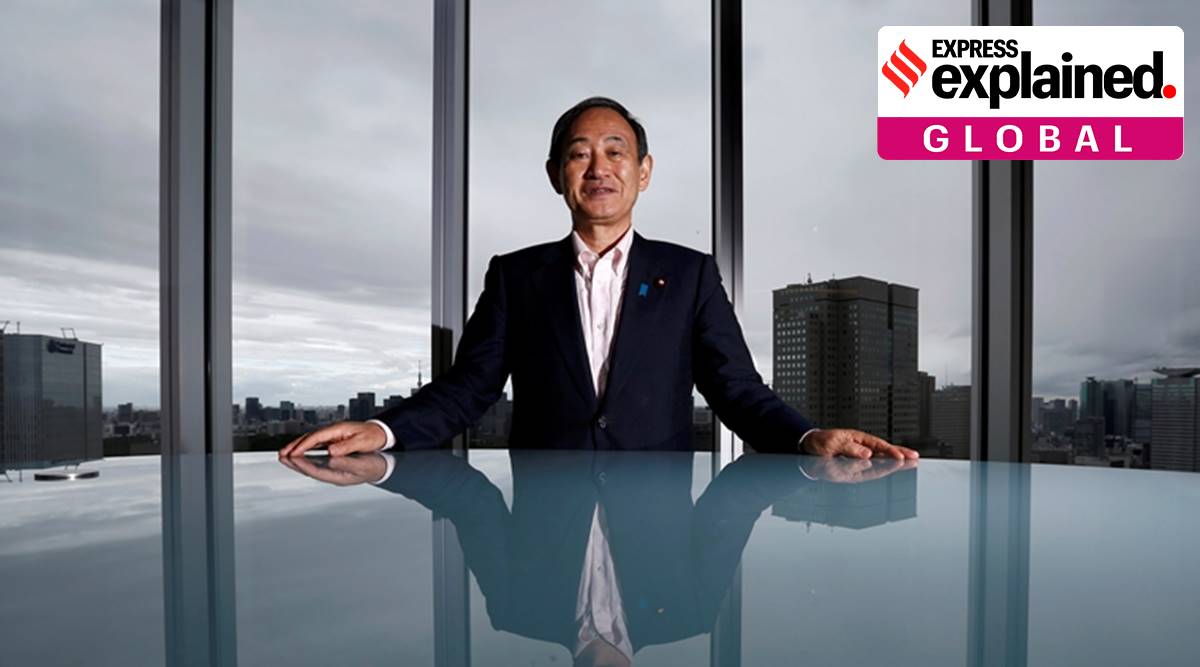
The Indian Express
Explained: Who is Yoshihide Suga, the strawberry farmer’s son now Japan’s PM?
Yoshihide Suga is described as Shinzo Abe’s "right-hand man". What sets him apart from several Japanese leaders is his image as a self-made man who does not belong to a dynasty or elite political family.
by Explained DeskLast month, Japan’s Prime Minister Shinzo Abe, the country’s longest-serving leader, resigned from his position citing health reasons. On Monday, Japan’s longest-serving Chief Cabinet Secretary Yoshihide Suga was elected president of the ruling Liberal Democratic Party (LDP) ensuring his place as Abe’s successor. Suga was formally named as the new prime minister on September 16.
Once he formally takes over, Suga will serve out Abe’s remaining term as party chief until September 2021.
Who is Yoshihide Suga?
Born in 1948 to a strawberry farmer and a schoolteacher in rural Japan, Suga helped in the fields as a child and went on to enrol at the Hosei University in 1969. Suga is described in various media reports as Abe’s “right-hand man” and was widely seen as his successor. What sets him apart from several Japanese leaders is his image as a self-made man who does not belong to a dynasty or elite political family. Abe, on the other hand, is a third-generation politician and the grandson of a former prime minister.
https://images.indianexpress.com/2020/08/1x1.png
While during his days as a student, Suga showed little interest in the student protests against the security alliance between Japan and the US and the Vietnam War, he gradually became interested in politics and successfully ran for the Yokohama city assembly in 1987 and entered national politics in 1996.
According to a report in The Mainichi, Suga was relatively unknown until April 2019, when he unveiled the name of the new imperial era that earned him the nickname “Uncle Reiwa”. On May 1, 2019, Japan entered a new era after Emperor Akihito stepped down to make way for his son, Naruhito. At the time, Abe had said, “The meaning behind the name of Reiwa is that culture is born and nourished as people’s hearts are drawn beautifully together.”
In an interview Suga gave to the Japan Times last Saturday, he said he hoped to amend the Constitution of Japan that has not been amended since it took effect in 1947 and was one of Abe’s long-held goals. Suga also mentioned other campaign promises including protecting jobs and people’s livelihoods, defending Japan’s national interests and focusing on the Japan-US alliance as the basis of the foundation of the country’s security, in line with Abe’s vision.
Suga has also promised to continue his predecessor’s economic policy “Abenomics” that focused on Japan’s economic revival and combined structural reform, monetary easing and fiscal expansion, with the goal to increase domestic demand.